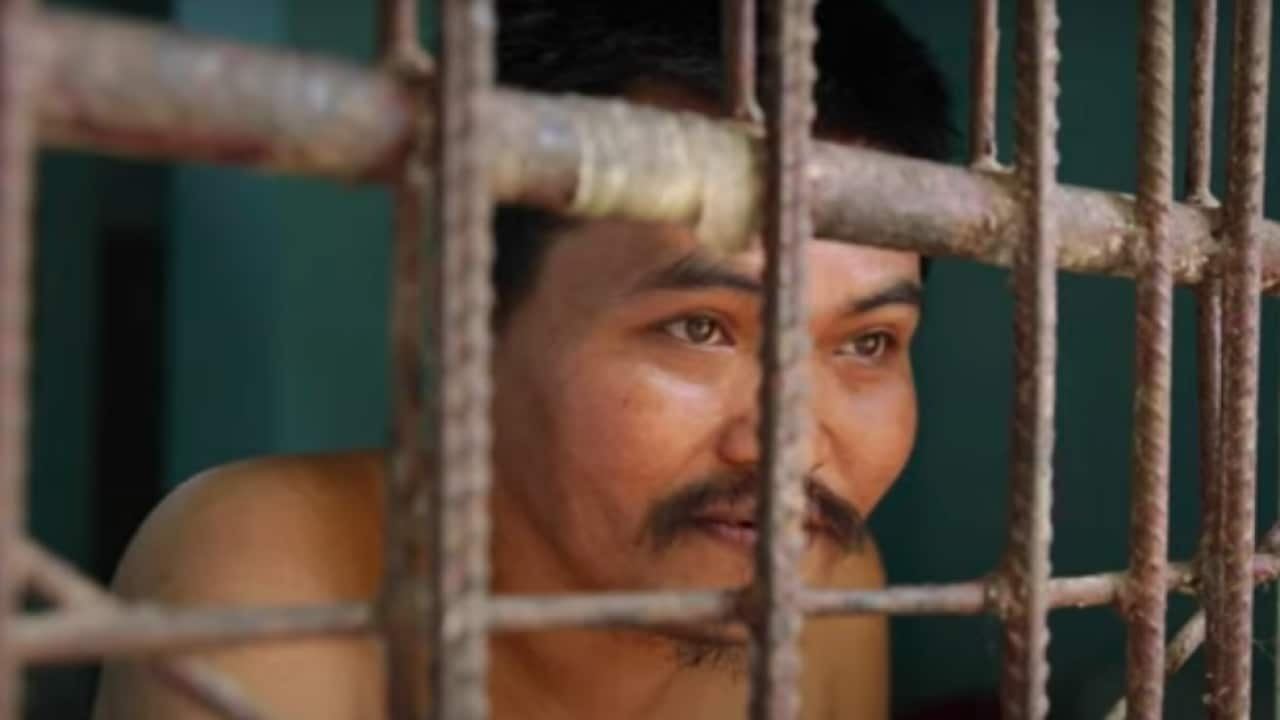Hundreds of thousands of men, women and children with mental health conditions are shackled in about 60 countries across the world, according to a new Human Rights Watch report.
Without an adequate mental health program, people with disabilities are often chained or locked in confined spaces against their will, and left to eat, sleep and use the bathroom in the same small space, released on Wednesday.
“Shackling people with mental health conditions is a widespread brutal practice that is an open secret in many communities,” said Kriti Sharma, senior disability rights researcher at Human Rights Watch and author of the report.
“People can spend years chained to a tree, locked in a cage or sheep shed because families struggle to cope and governments fail to provide adequate mental health services.”
Ms Sharma said the belief in many countries “is that people with mental health conditions are bewitched, or possessed or have sinned, and as a result, they have a condition”.
The organisation interviewed over 350 people with psychosocial disabilities, including children, and 430 family members, mental health professionals, staff workers and disability rights advocates.
Roughly 60 different countries were named where the practice was taking place, including research and testimonies from Afghanistan, Burkina Faso, Cambodia, China, Ghana, Indonesia, Kenya, Liberia, Mexico, Mozambique, Nigeria, Sierra Leone, Palestine, the self-declared independent state of Somaliland, South Sudan, and Yemen.
‘I hate the shackles’
One man from Kenya, named Paul in the report, said he is chained in a room with seven other men and not allowed to wear clothes.
“I’ve been chained for five years. The chain is so heavy. It doesn’t feel right; it makes me sad. I stay in a small room with seven men. I’m not allowed to wear clothes, only underwear. I eat porridge in the morning and if I’m lucky, I find bread at night, but not every night,” he said.
An Indonesian man named Made, who been locked in a purpose-built cell on his father’s land for two years in Bali, said he yearns to be outside.
“I feel sad, locked in this cell. I want to look around outside, go to work, plant rice in the paddy fields. Please open the door. Please open the door. Don’t put a lock on it,” he said. Mudinat, a woman with a psychosocial disability chained at a church in Abeokuta, Nigeria, said she eats just once a day and is made to urinate and defecate in bags.
Mudinat, a woman with a psychosocial disability chained at a church in Abeokuta, Nigeria, said she eats just once a day and is made to urinate and defecate in bags.

Two women are chained in a room at the Coptic Church Mamboleo in Kenya, where over 60 men, women, and children with mental health conditions are detained. Source: Kriti Sharma/Human Rights Watch
“I go to the toilet in nylon bags, until they take it away at night. I last took a bath days ago. I eat here once a day. I am not free to walk about. At night I sleep inside the house. I stay in a different place from the men. I hate the shackles.”
“In many of these institutions, the level of personal hygiene is atrocious because people are not allowed to bathe or change their clothes, and live in a two-metre radius,” Ms Sharma said. “Dignity is denied.”
A young woman from Guangdong in China said her aunt was locked up and isolated from the rest of the family.
“All through my childhood, my aunt was locked in a wooden shed and I was forbidden to have contact with her. My family believed her mental health condition would stigmatise the whole family. I really wanted to help my aunty but couldn’t. It was heartbreaking.”
Governments urged to act
Human Rights Watch published the report ahead of World Mental Health Day on 10 October.
The organisation has been working with mental health advocates and other human rights and anti-torture organisations to launch a global #BreakTheChains campaign to end shackling of people with mental health conditions.
“It’s horrifying that hundreds of thousands of people around the world are living in chains, isolated, abused, and alone,” Ms Sharma said.
“Governments should stop brushing this problem under the rug and take real action now.”


